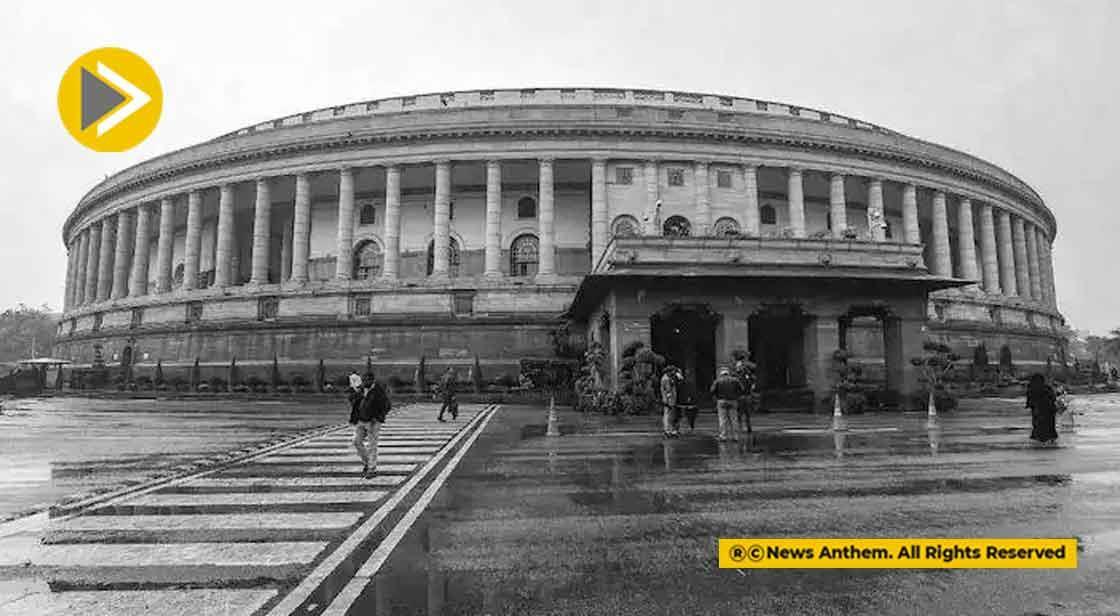Lok Sabha Approves Waqf (Amendment) Bill Following Extensive Debate

News Synopsis
The Waqf (Amendment) Bill 2025 was a major topic of discussion in the Lok Sabha on Wednesday. After nearly 12 hours of deliberation, the Bill was passed in the early hours of Thursday with a majority of 288 votes against 232. The passage of this Bill marks a significant step in the government’s ongoing reforms regarding Waqf properties in India.
Home Minister’s Criticism of 2013 Waqf Amendments
Union Home Minister Amit Shah strongly criticized the 2013 amendments to the Waqf Act, implemented during the previous UPA government. He described these changes as politically motivated and rushed before the 2014 elections. Shah highlighted the controversial transfer of 123 VVIP properties in Delhi’s Lutyens zone to Waqf authorities as a major consequence of these amendments. He argued that the current amendment was necessary to rectify past mismanagement and ensure better accountability within the Waqf Board.
Government’s Defense Against Opposition Claims
Ahead of the voting process, Union Parliamentary Affairs Minister Kiren Rijiju addressed allegations that the government was targeting the Muslim community. He emphasized that it was the previous administration that divided the community by creating separate Waqf boards for Sunni and Shia sects. Rijiju argued that the government’s proposal for a unified Waqf board aimed at fostering unity rather than division.
He also responded to concerns about non-Muslim involvement in religious affairs, clarifying the distinction between Waqf properties and the Waqf Board. Rijiju defended the role of district collectors in Waqf-related matters, asserting that their duties include revenue administration and welfare, making them trustworthy authorities for overseeing these affairs.
Contentious Debate and Opposition Reactions
A heated debate ensued, with AIMIM chief and Hyderabad MP Asaduddin Owaisi strongly opposing the Bill. He went as far as tearing a copy of the document, labeling it an insult to Muslims. Congress MP Gaurav Gogoi also criticized the Bill, claiming it was an attack on the Constitution and aimed at marginalizing the Muslim community.
Samajwadi Party President Akhilesh Yadav expressed his concerns over the ambiguity in terms like "Unified Waqf Management" and argued that the Bill lacked clarity in both English and Hindi. Senior Congress leader Rashid Alvi assured that the Congress party would revise the Waqf law when it comes to power in 2029.
Support from Religious and Government Bodies
Despite opposition from several political leaders, Syed Naseruddin Chishty, Chairman of the All India Sufi Sajjadanashin Council, dismissed claims that the Bill sought to seize religious properties. He urged the Muslim community not to believe misinformation and clarified that the Bill's primary objective was to prevent misuse of Waqf properties.
Additionally, National Commission for Minorities (NCM) chairman Iqbal Singh Lalpura extended support for the Bill, asserting that it serves the larger interest of the community and will not cause harm to Muslims.
Opposition from Jammu & Kashmir and Regional Leaders
Political parties from Jammu & Kashmir, barring the BJP, unanimously opposed the Bill. Former Chief Minister Omar Abdullah stated that the legislation was unacceptable to his party. Congress spokesperson Pawan Khera also strongly condemned the Bill, calling it anti-Muslim and unconstitutional. He argued that the law violates the principles of equality, federalism, and minority rights as envisioned by B.R. Ambedkar.
Kerala Congress MP K.C. Venugopal accused the government of pushing a divisive agenda under the guise of legal reforms. He claimed that the sole motive behind the Bill was to create communal discord and distract from governance failures.
Conclusion
The passage of the Waqf (Amendment) Bill 2025 in the Lok Sabha has sparked a nationwide debate, with sharp divisions between supporters and opponents. While the government insists that the Bill aims to enhance transparency and prevent mismanagement, opposition parties and some regional leaders see it as a politically motivated move targeting the Muslim community. As the Bill moves forward, its implementation and impact on Waqf properties across the country will remain under close scrutiny.
You May Like









